18 Successful Traits for Walking the Spiritual Path
 What is the true measure of success in life?
What is the true measure of success in life?
I recently came across this insightful article on the internet that I found quite inspirational. It provides a list of 18 things highly creative people do differently. It also struck me that they are traits that greatly help Walking the Spiritual Path successfully too. So that's why I felt to share them here. How can you find true creative fulfillment, happiness and harmony in your life? I believe you'll discover some some essential clues here below...
The purpose of life? The purpose of the soul?
In the Openhand Approach, there is only ever one thing going on in life...
The purpose of the soul is creative expression, which is the actualisation of the One. It is to express qualities from the infinite potential of the source - The One - that you are.
So it is my observation that those who really find success, happiness, harmony and joy in life, are those who're always looking for and unleashing the next glorious expression of self. For me, it's never about trying to shape what happens in the external world in some way. You cannot control that, because there are simply too many variables - other creative souls for example who are all having an influence on reality. But what you can do, is sense the nature of reality and intuit the underlying universal flow through it. Then like the wind through chimes, attune to how the flow wants to animate you as an arising expression through your soul. It's my observation that if you do this, then you unleash the miraculous creative flow of the universe through you. And there is simply nothing to surpass this in terms of fulfillment. If you can master how to do it in every moment, then I observe it leads to true Enlightenment.
18 Traits and how to benefit from them
When I read these traits shared below, it's not that we should try to forcibly imprint them on our own personality. I share them more to activate seeds of awareness. I believe they all emanate from Characteristics of the Soul as it endeavours to unleash itself from identification with the illusion. So I invite you to contemplate, feel, and if anything resonates, begin to watch for and attune these kinds of traits in your life too... By Carolyn Gregoire Huffington Post...
1) They daydream: Creative types know, despite what their third-grade teachers may have said, that daydreaming is anything but a waste of time. According to Kaufman and psychologist Rebecca L. McMillan, who co-authored a paper titled “Ode To Positive Constructive Daydreaming,” mind-wandering can aid in the process of “creative incubation.” And of course, many of us know from experience that our best ideas come seemingly out of the blue when our minds are elsewhere. Although daydreaming may seem mindless, a 2012 study suggested it could actually involve a highly engaged brain state — daydreaming can lead to sudden connections and insights because it’s related to our ability to recall information in the face of distractions. Neuroscientists have also found that daydreaming involves the same brain processes associated with imagination and creativity.
2) They observe everything: The world is a creative person’s oyster — they see possibilities everywhere and are constantly taking in information that becomes fodder for creative expression. As Henry James is widely quoted, a writer is someone on whom “nothing is lost.” The writer Joan Didion kept a notebook with her at all times, and said that she wrote down observations about people and events as, ultimately, a way to better understand the complexities and contradictions of her own mind: “However dutifully we record what we see around us, the common denominator of all we see is always, transparently, shamelessly, the implacable ‘I,’” Didion wrote in her essay On Keeping A Notebook. “We are talking about something private, about bits of the mind’s string too short to use, an indiscriminate and erratic assemblage with meaning only for its marker.”
3) They work the hours that work for them: Many great artists have said that they do their best work either very early in the morning or late at night. Vladimir Nabokov started writing immediately after he woke up at 6 or 7 a.m., and Frank Lloyd Wright made a practice of waking up at 3 or 4 a.m. and working for several hours before heading back to bed. No matter when it is, individuals with high creative output will often figure out what time it is that their minds start firing up, and structure their days accordingly.
4) They take time for solitude: “In order to be open to creativity, one must have the capacity for constructive use of solitude. One must overcome the fear of being alone,” wrote the American existential psychologist Rollo May. Artists and creatives are often stereotyped as being loners, and while this may not actually be the case, solitude can be the key to producing their best work. For Kaufman, this links back to daydreaming — we need to give ourselves the time alone to simply allow our minds to wander. “You need to get in touch with that inner monologue to be able to express it,” he says. “It’s hard to find that inner creative voice if you’re … not getting in touch with yourself and reflecting on yourself.”
5) They turn life’s obstacles around: Many of the most iconic stories and songs of all time have been inspired by gut-wrenching pain and heartbreak — and the silver lining of these challenges is that they may have been the catalyst to create great art. An emerging field of psychology called post-traumatic growth is suggesting that many people are able to use their hardships and early-life trauma for substantial creative growth. Specifically, researchers have found that trauma can help people to grow in the areas of interpersonal relationships, spirituality, appreciation of life, personal strength, and — most importantly for creativity — seeing new possibilities in life. “A lot of people are able to use that as the fuel they need to come up with a different perspective on reality,” says Kaufman. “What’s happened is that their view of the world as a safe place, or as a certain type of place, has been shattered at some point in their life, causing them to go on the periphery and see things in a new, fresh light, and that’s very conducive to creativity.”
6) They seek out new experiences: Creative people love to expose themselves to new experiences, sensations and states of mind — and this openness is a significant predictor of creative output. “Openness to experience is consistently the strongest predictor of creative achievement,” says Kaufman. “This consists of lots of different facets, but they’re all related to each other: Intellectual curiosity, thrill seeking, openness to your emotions, openness to fantasy. The thing that brings them all together is a drive for cognitive and behavioral exploration of the world, your inner world and your outer world.”
7) They “fail up”: Resilience is practically a prerequisite for creative success, says Kaufman. Doing creative work is often described as a process of failing repeatedly until you find something that sticks, and creatives — at least the successful ones — learn not to take failure so personally. “Creatives fail and the really good ones fail often,” Forbes contributor Steven Kotler wrote in a piece on Einstein’s creative genius.
8) They ask the big questions: Creative people are insatiably curious — they generally opt to live the examined life, and even as they get older, maintain a sense of curiosity about life. Whether through intense conversation or solitary mind-wandering, creatives look at the world around them and want to know why, and how, it is the way it is.
9) They people-watch: Observant by nature and curious about the lives of others, creative types often love to people-watch — and they may generate some of their best ideas from it. “[Marcel] Proust spent almost his whole life people-watching, and he wrote down his observations, and it eventually came out in his books,” says Kaufman. “For a lot of writers, people-watching is very important … They’re keen observers of human nature.”
10) They take risks: Part of doing creative work is taking risks, and many creative types thrive off of taking risks in various aspects of their lives. “There is a deep and meaningful connection between risk taking and creativity and it’s one that’s often overlooked,” contributor Steven Kotler wrote in Forbes. “Creativity is the act of making something from nothing. It requires making public those bets first placed by imagination. This is not a job for the timid. Time wasted, reputation tarnished, money not well spent — these are all by-products of creativity gone awry.”
11) They view all of life as an opportunity for self-expression: Nietzsche believed that one’s life and the world should be viewed as a work of art. Creative types may be more likely to see the world this way, and to constantly seek opportunities for self-expression in everyday life. “Creative expression is self-expression,” says Kaufman. “Creativity is nothing more than an individual expression of your needs, desires and uniqueness.”
12) They follow their true passions. Creative people tend to be intrinsically motivated – meaning that they’re motivated to act from some internal desire, rather than a desire for external reward or recognition. Psychologists have shown that creative people are energized by challenging activities, a sign of intrinsic motivation, and the research suggests that simply thinking of intrinsic reasons to perform an activity may be enough to boost creativity. “Eminent creators choose and become passionately involved in challenging, risky problems that provide a powerful sense of power from the ability to use their talents,”write M.A. Collins and T.M. Amabile in The Handbook of Creativity.
13) They get out of their own heads: Kaufman argues that another purpose of daydreaming is to help us to get out of our own limited perspective and explore other ways of thinking, which can be an important asset to creative work. “Daydreaming has evolved to allow us to let go of the present,” says Kaufman. “The same brain network associated with daydreaming is the brain network associated with theory of mind — I like calling it the ‘imagination brain network’ — it allows you to imagine your future self, but it also allows you to imagine what someone else is thinking.” Research has also suggested that inducing “psychological distance” – that is, taking another person’s perspective or thinking about a question as if it was unreal or unfamiliar — can boost creative thinking.
14) They lose track of the time: Creative types may find that when they’re writing, dancing, painting or expressing themselves in another way, they get “in the zone,” or what’s known as a flow state, which can help them to create at their highest level. Flow is a mental state when an individual transcends conscious thought to reach a heightened state of effortless concentration and calmness. When someone is in this state, they’re practically immune to any internal or external pressures and distractions that could hinder their performance. You get into the flow state when you’re performing an activity you enjoy that you’re good at, but that also challenges you — as any good creative project does. “[Creative people] have found the thing they love, but they’ve also built up the skill in it to be able to get into the flow state,” says Kaufman. “The flow state requires a match between your skill set and the task or activity you’re engaging in.”
15) They surround themselves with beauty: Creatives tend to have excellent taste, and as a result, they enjoy being surrounded by beauty. A study recently published in the journal Psychology of Aesthetics, Creativity, and the Arts showed that musicians — including orchestra musicians, music teachers, and soloists — exhibit a high sensitivity and responsiveness to artistic beauty.
16) They connect the dots: If there’s one thing that distinguishes highly creative people from others, it’s the ability to see possibilities where other don’t — or, in other words, vision. Many great artists and writers have said that creativity is simply the ability to connect the dots that others might never think to connect. In the words of Steve Jobs:
“Creativity is just connecting things. When you ask creative people how they did something, they feel a little guilty because they didn’t really do it, they just saw something. It seemed obvious to them after a while. That’s because they were able to connect experiences they’ve had and synthesize new things.”
17) They constantly shake things up: Diversity of experience, more than anything else, is critical to creativity, says Kaufman. Creatives like to shake things up, experience new things, and avoid anything that makes life more monotonous or mundane. "Creative people have more diversity of experiences, and habit is the killer of diversity of experience," says Kaufman.
18) They make time for mindfulness: Creative types understand the value of a clear and focused mind -- because their work depends on it. Many artists, entrepreneurs, writers and other creative workers, such as David Lynch, have turned to meditation as a tool for tapping into their most creative state of mind.
Passion and Commitment
For me, success in life is fired by passion and commitment, which hones itself by the constant inquiry of what brings true joy and fulfillment in life. And by the way, it's not necessarily just in the easy going things. It's in the challenges that push you to discover and unleash ever more of your soul. Your soul is willing you on to do this. We just have to pay attention to its sweet calling and align with it. This brings with it a true sense of success in life...
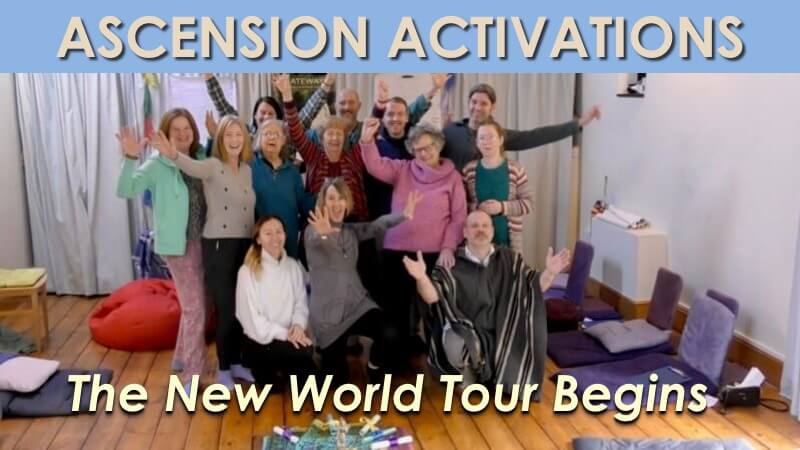 Come and Find Your Passion in Life on Openhand's Ascension Activations
Come and Find Your Passion in Life on Openhand's Ascension Activations
A New World of Possibility Awaits!
In loving support
Open ![]()
![]()
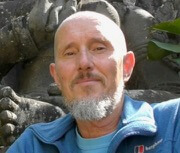 About Openhand: Openhand is a unique approach to spiritual evolution. Integrating enlightened wisdom of spiritual masters through the ages, it is a way of aligning with the Benevolent Guiding Consciousness of the Universe in your life. It helps you remove karmic blockages to unveil your Cosmic Self and unfold your Divine Destiny. It leads to authentic and alchemical living in the Earth's Higher Dimensional Shift.
About Openhand: Openhand is a unique approach to spiritual evolution. Integrating enlightened wisdom of spiritual masters through the ages, it is a way of aligning with the Benevolent Guiding Consciousness of the Universe in your life. It helps you remove karmic blockages to unveil your Cosmic Self and unfold your Divine Destiny. It leads to authentic and alchemical living in the Earth's Higher Dimensional Shift.
Join us...Openhandweb, Openhand FB, Openhand YouTube
Comments
What soul qualities are latent in you that you can develop?
Comment
When I came across this list of 18 qualities of successful people, I immediately saw the soul qualities in them - they're probably the same thing.
So do check through the qualities because I believe they can inspire you on in life and the journey.
What qualities are wanting to come active in you?
Open ![]()
18 Successful Traits for Walking the Spiritual Path (scroll to the top)
Another Yesss...
Comment
Another Resounding Yesss from over here. Great article and conversations surrounding it.
Keep it up,
Jim
Wynde, wonderful, I love it!…
Comment
Wynde, wonderful, I love it! Thinking Limitless. And also living limitless, or at least that to be the vision and the compass in life. For more freedom and love to emerge. And creativity and beauty.
The smoky dragon was indeed phenomenal. For a limitless life, a sense of trust to the unchanging wonder of divine, heartfull connection is paramount. The smoky dragon synch evoked in me that sense of trust, which makes living a limitless life more possible.
Stirring inquiry, thank you xx
Limits
Comment
Aspasia I agree and love the guru concept! Every thing can teach us something huh! We are all about as limited as we think, so thinking limitless is just so much more freeing!
Oh and I wanted to send a thank you for mentioning the smoky dragon in a previous thread too lol! It's these phenomenal things that happen around me that just makes not my life per say, but my moment in time. They actually help my creative endeavors alot too and certainly make alot of people stop and just take notice of how amazing life can be if one allows it.
Wyndè
Answers in all ways and all things
Comment
Wynde, this really spoke to me: "Seeking and discovering answers in all ways and all things". I love the open versatility of beingness in this and also the playful inquisitiveness. All ways and all things then are 'my guru' (to borrow the word from another thread) - there are limitless possibilities (18 and beyond!) when I can learn from everyone and everything in every way!
Thank you for the creative inquiry x
High Five!
Comment
I had to giggle a bit at this article and just wanted to send a huge high five and an amen to that!
I'm reading this thinking uhh huh yup, that's me, check check check down the list lol! I even shut everything out and I used to feel bad for having to shut people out but thankfully I'm getting to a place where I can just say no, sorry.. Not today, maybe tomorrow who knows!
Makes me remember too how they used to send me to the school psychologist because I just kept daydreaming away, its funny looking back at it though because I never could give an answer to why I was doing it I just usually said I dont know, maybe I'm just thinking.. of stuff and people and the whys of the why. I think it does actually help my unique spiritual path though in the aspect that I'm kind of like a dog and its bone.. I keep going seeking answers in all ways and all things. Heck, it even brought me here :)
High Five to the Creative!
Wyndè
The value of daydreaming
Comment
It's a great question Richard - hi there.
There's a widely held view at the moment in spiritual circles that to be in the moment means not to be thinking - that thought is just your 'story'. I think this is slightly misguided. The mind is also here in the now! Yet I agree, that to be disconnected from this reality is also an illusion. So to me there's a balance. I'll 'daydream' at times but there's a relationship that goes on between the inner and outer world still. And yes, I think you hit the nail on the head - to be conscious while daydreaming - to observing yourself in the dream. That way the dream has a point.
I find that in daydreaming this way, it stimulates a good deal of creativity. And I also feel if I start to slip off somewhere unreal. An awareness brings me back to what is possible. When you're aligned in this way, then I find it actually begins to make reality shape. It's like you're observing the unfolding of the path.
Best wishes
Open
Daydreaming and the observer.
Comment
Hi,
Thanks for sharing this article, great comparison there and certainly guidelines for an enriching life. I have a question about daydreaming though. This was something I used to do a lot and was told that I was escaping the moment. When I am trying to be the observer I really find it impossible to drift off like that. What is the openhand perspective on daydreaming and being in the moment? Perhaps as with so many things, just a balance needed. Or perhaps there is a way of being consciously aware while daydreaming? Thanks
Richard
Lovely story and sharing
Comment
Lovely story and sharing Fiona.
Thanks
Open *OK*
A philosophy of failure!
Comment
Hi,
Thanks for sharing an interesting article. Just now I am picking up on the willingness to take risks and experience failure. I came across the story of Madeline L'Engle at the weekend. She was an american writer of children's fiction. She received 30 rejections of her book "A Wrinkle in Time" before it was accepted for publishing. (She then went on to publish many more books and become quite successful.) Here is what she says about this:
"Over the years I have worked out a philosophy of failure, which I find extraordinarily liberating. If I am not free to fail, I'm not free to take risks and everything in life that is worth doing involves a willingness to risk failure. This is what's true in all human relationships, unless I am willing to open myself to risk and to being hurt, then I'm closing myself off to love and friendship."
A great philosophy, liberating indeed :)
Love Fiona
- Add new comment
- 11677 views










 Check Latest EVENTS 2025
Check Latest EVENTS 2025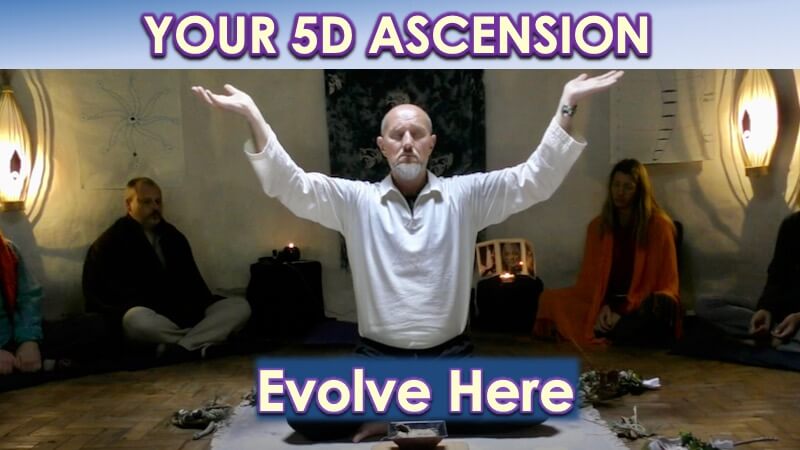 Openhand 5D Ascension Program
Openhand 5D Ascension Program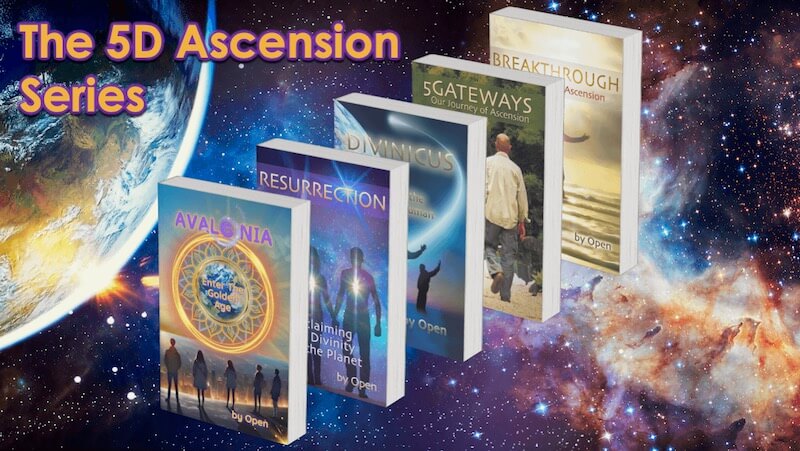 Transform Your Consciousness, uplift your life, enter Golden Age.
Transform Your Consciousness, uplift your life, enter Golden Age.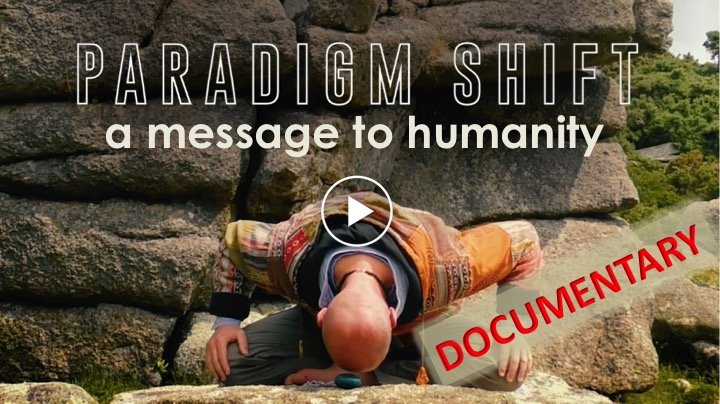
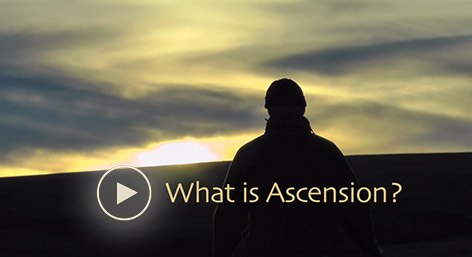
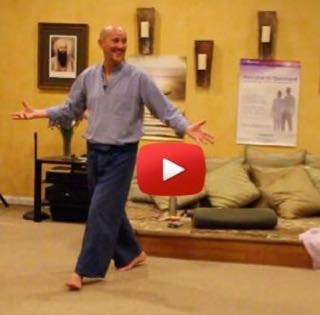 Break through Your Tightness
Break through Your Tightness


Add new comment